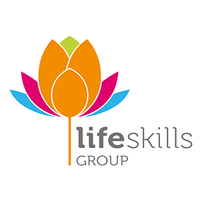I am often asked to support schools with their school plans or to evaluate projects or initiatives that they are running. One of the first places we start is asking “What are you are trying to achieve with this plan or this project? What does success look like?”
When it comes to reading and numeracy, this is normally a clear conversation. Student needs are well documented, there is a theory of action for how it will be addressed and clear reflection points where the program can be evaluated, and next steps can be determined. In other words, a formative process for continuous improvement.
When it comes to wellbeing however it becomes a little more ad hoc. Typically, there will be an attendance target and a desire to reduce negative behaviours, these may have some strategies or programs accompanying them. Sometimes there is a tokenistic student survey thrown in the mix and often there is a wellbeing program in place.
To help strengthen clarity I ask the following series of questions:
· Will the measures you have in place match the activities you are doing?
· Does the data you collect provide sufficient insight for you to make a confident decision about what to do next?
· Is there anything you value in wellbeing that is not measured?
I am yet to meet a school who only wants to be described by stats and I am yet to believe a school who only wants to tell me stories. To describe wellbeing in a school, it takes a combination of qualitative and quantitative information. It is also critical that this information is relevant and reliable and that it is analysed for insight and meaning to inform decisions.
Sometimes, schools can paint themselves into a corner by setting unrealistic measures like 100% of students are happy 100% of the time*. Obviously, this is an unachievable target. If I saw a school trying to claim this, would view it through a very cynical lens much in the same way I would view a student who had not made a mistake in their book all year.
Of course, we know that wellbeing is influenced by many factors including but not exclusive to family, friendships and environment. Some days are going to be better than others, so for schools there is a huge benefit on focusing their programs on wellbeing processes.
A successful wellbeing program will ensure three key things:
-
Student wellbeing needs are identified with sufficient frequency to enable timely support.
-
Systems are in place that the right information is available at he right time to the right people and they provide timely support.
-
Support provided is monitored for impact so successful practice can be repeated, and unsuccessful practices are not.
In other words, a formative process for continuous improvement.
Successful school wellbeing programs won’t be able to resolve and prevent wellbeing needs occurring but rather they will equip educators with the information they need to support students work through their wellbeing issues when they inevitably occur.
*no school that I am aware of has actually tried to set this target, I have included this for illustrative purposes but I do see unrealistic quantitative measures applied regularly.
[ Rydr Tracy is the Head of Education at Life Skills Group and former Director Strategic Priorities at CESE. He is a specialist in evidence-informed practice in educational innovation, with a career focus on strategic change that improves student outcomes. He draws on a rare blend of successful experience in schools, system leadership roles and industry practice – experience that has given him deep understanding of the complexities of the education sector from the classroom to the boardroom and a demonstrated capacity to generate practical recommendations that are grounded in context and evidence. ]
.png?width=500&height=374&name=Logo_transparent%20(2).png)





